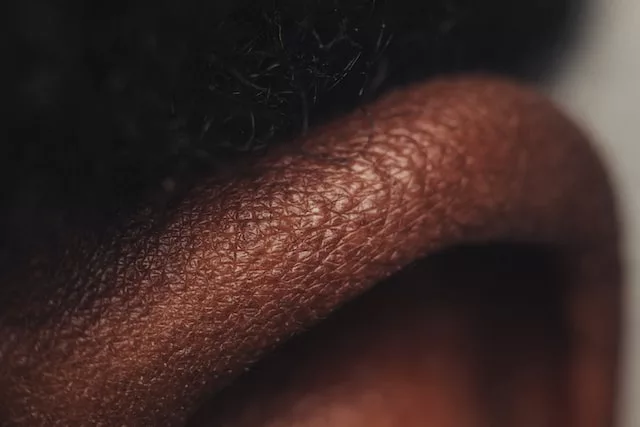Say Goodbye To Dry, Cracked Skin Behind Your Ears: Here's How
When it comes to taking care of our skin, we often focus on the face and neglect other parts of our body. The skin behind our ears can often be forgotten; however, it can be prone to dryness and cracking. Experts have suggested that keeping the skin behind our ears healthy is just as important as taking care of our face. Here are some key tips on how to keep the skin behind your ears healthy and hydrated.
1. Avoid Hot Showers
Long hot showers can be tempting and relaxing; however, they can strip your skin of its natural oils and protective layer, making it much drier. To prevent dry skin behind your ears, take shorter showers that are lukewarm and use a mild cleanser.
2. Use Moisturizer
It’s important to keep your skin hydrated and moisturized, particularly in the dry winter months. Use a moisturizer regularly, especially after showering or bathing to lock in moisture and keep your skin hydrated. Choose skin-care products that are specifically designed for the delicate skin behind your ears.
3. Wear Sunscreen
The skin behind your ears can be particularly vulnerable to sun damage which can cause dryness, soreness and discomfort. To protect the area apply a sunscreen with at least SPF 30, even on cloudy days, and remember to reapply often.
4. Avoid Scratching
The skin behind and in the folds of your ear can often be very tempting to scratch but it’s important to resist. Scratching and picking can further irritate the skin and cause more damage. If you feel the urge to scratch, try using a cold compress and some gentle moisturizer instead.
5. Keep it Clean
The skin behind your ears is prone to collecting sweat and dirt, especially during the summer months. To keep your skin clean and healthy, you should wash the area regularly using a mild cleanser.
6. Stay Hydrated
Drinking plenty of water and eating a healthy diet will help to keep your skin hydrated and nourished. Make sure to include plenty of fresh fruits and vegetables in your diet and try to drink at least eight glasses of water a day.
7. Look After Your Scalp
When we think of dry skin we often focus on the face and hands, but our scalps can also suffer from dryness. This can cause the skin at the back of your ear to become dry and flaky, so make sure to use a shampoo and conditioner rich in natural oils.
8. Consider a Humidifier
Humidifiers can be a great way to add moisture to your home, particularly in the dry winter months. Using a humidifier can help to prevent dryness and cracking in the skin behind your ears, keep your skin hydrated and healthy.
9. Treat Ear Infections Early
If you start to notice signs of an ear infection such as inflammation and redness, get it checked out immediately. These infections can cause dryness and flaking of the skin behind your ear if they are left untreated.
10. Get Regular Facials
Finally, don’t forget to book yourself in for a regular facial at a spa or beauty clinic. Facials can help to keep your skin healthy and hydrated, even in the area behind your ears.
Taking care of the skin behind your ears is just as important as taking care of your face. With these tips, you can help to keep your skin healthy and hydrated, giving it the care it needs to stay looking and feeling great.
